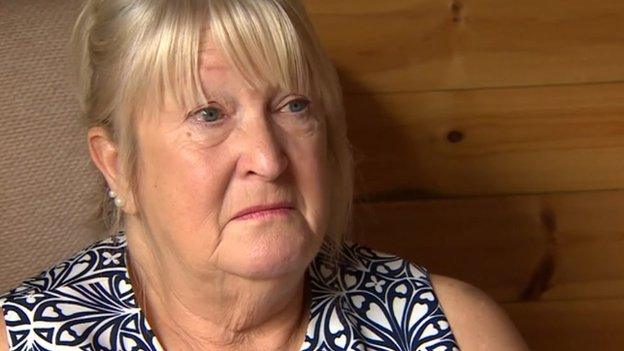Tunisia attack: Victim Trudy Jones identified by her nail polish
- Published
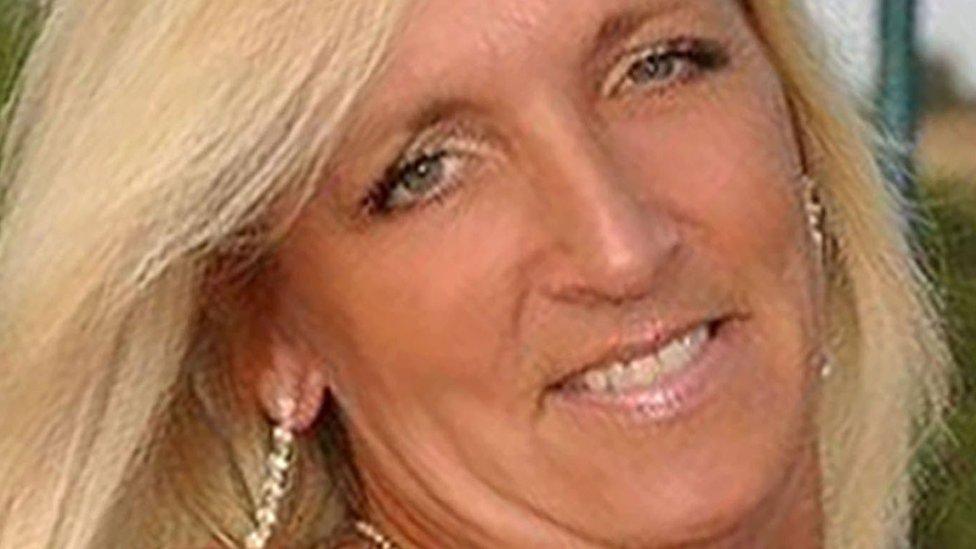
Trudy Jones was described as a "beautiful person, inside and out"
A British survivor of mass shootings at a Tunisian beach resort identified her friend's body by her glittery toenail polish, an inquest has heard.
Mother-of-four Trudy Jones, 51, was one of 30 Britons to die in the attack in June 2015.
She was on holiday with friend Carol Anne Powell, who survived the attack and later identified Ms Jones's body.
Islamist Seifeddine Rezgui gunned down 38 people in total at the five-star Riu Imperial Marhaba, near Sousse.
An inquest at the Royal Courts of Justice in London is set to hear evidence about each of the 30 British victims. The first victim the inquest heard details about was Ms Jones.
In Ms Powell's statement, she said she "heard the most terrible explosion" behind her.
She added that she initially thought it was an explosion in a beach kitchen, and then crowds of people appeared, running away from the area.
She told the inquest how Ms Jones, from Blackwood in South Wales, had gone to the beach, saying: "I wanted to run towards the beach to check on Trudy, but people were running towards me shouting 'Go, go'."
"I started to run towards the hotel with the crowds of people."
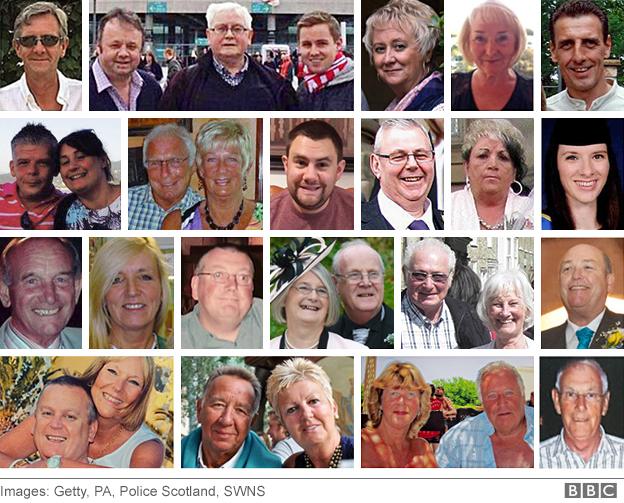
Thirty of the 38 people killed by a gunman on a Tunisian beach were British
Ms Powell described eventually deciding to play dead in a hotel car park.
She said a man picked her up and put her on his shoulders - while she continued to play dead - before carrying her to the safety of a neighbouring hotel.
"I am desperate to find out who he is because he saved me," she added.
Later, Ms Powell had to go to the mortuary where the victims' bodies were being held, and identified Ms Jones by her distinctive nail polish.
The court was told that a post-mortem examination was carried out in Tunisia and another in the UK - where Ms Jones was also identified through dental records.
Speaking to BBC Wales, the Jones family said: "It's been a heartbreaking day for all, re-living the events of June 2015.
"We will never come to terms with the loss of Trudy. She was the family's rock and our inspiration to life.
"Even though after this inquest it will be put to rest, we will never forget our treasure. She will always be in our hearts."
Gunman 'appeared calm'
Another witness said he hid behind a sun lounger as tourists were "executed" by the gunman, the inquest heard.
Simon Greaves, who had been on holiday with his wife, said in a statement that he had seen Rezgui kill a person on a sun lounger with a single shot "like an execution".
"People were screaming and running towards the gate to the hotel and into the sea to seek safety," he said.
He said Rezgui "appeared very calm and looked like he knew exactly what he was doing".
He added: "My only thought was to get to my wife. I had no other thoughts."
Tunisia inquest shown police map of killer's spree
The hearing briefly paused as Mr Greaves began to get upset.
He said he initially thought the gunshots were firecrackers: "I don't know the number of shots but it was a hell of a lot."
'I assumed we would be safe'
Another witness, Mark Hornby, who had booked a last-minute holiday at his local Thomson shop and was on holiday with Ms Powell, told the court that his travel agent had not said Tunisia was a terror risk.
"I assumed we would be safe," he said in a statement read out on his behalf.
At the time, the Foreign Office warned that "further attacks are possible" in the country, following shootings at a museum in the capital city of Tunis four months earlier.
Mr Hornby also told the court that there was "no security at all" at the front of the hotel and area around the hotel, despite the area being a known terror risk.
"It was easy to walk into another hotel, there was no one checking you," he added.
Rezgui was shot dead by police about an hour after the attack, which began at about midday on Friday 26 June 2015.
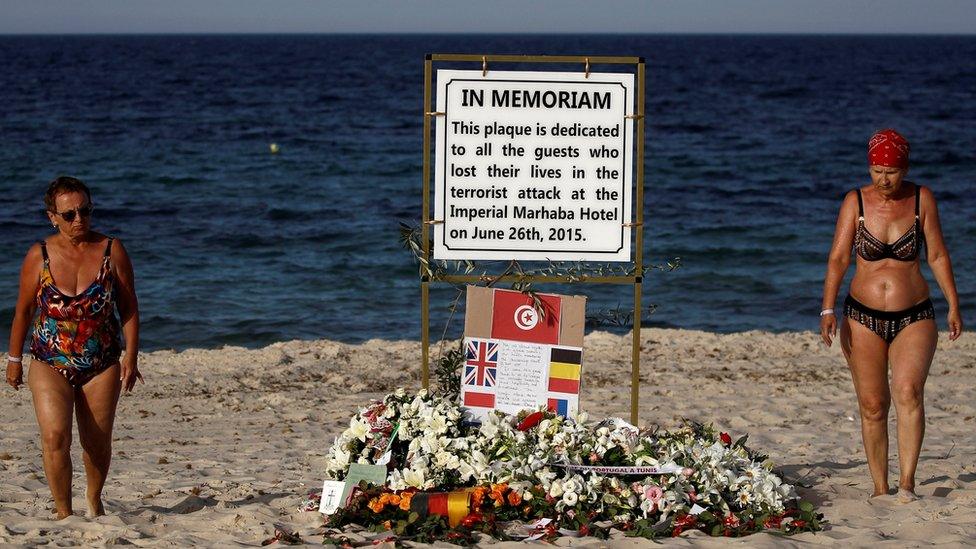
The inquest will look at whether the government and travel operators protected tourists
- Published16 January 2017
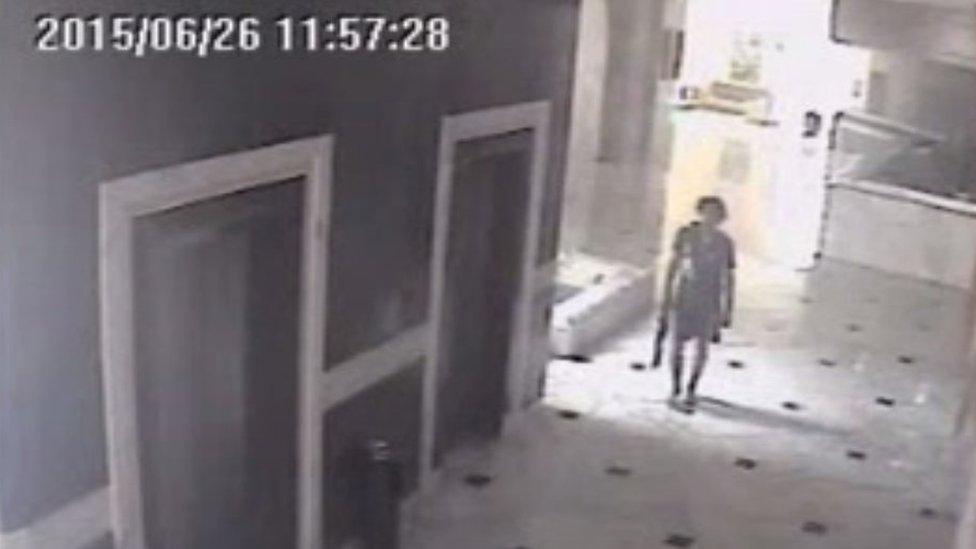
- Published16 January 2017
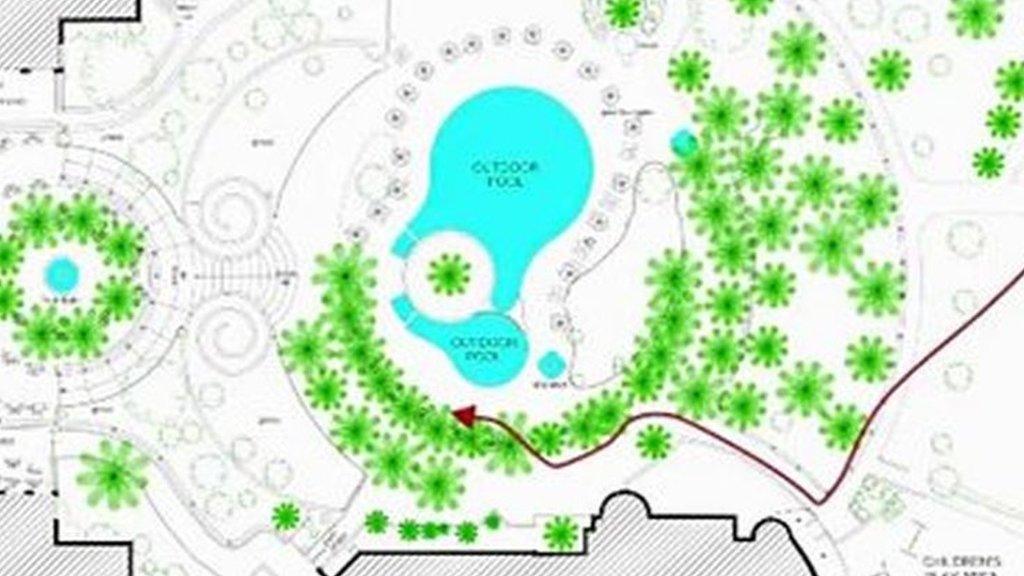
- Published9 January 2017
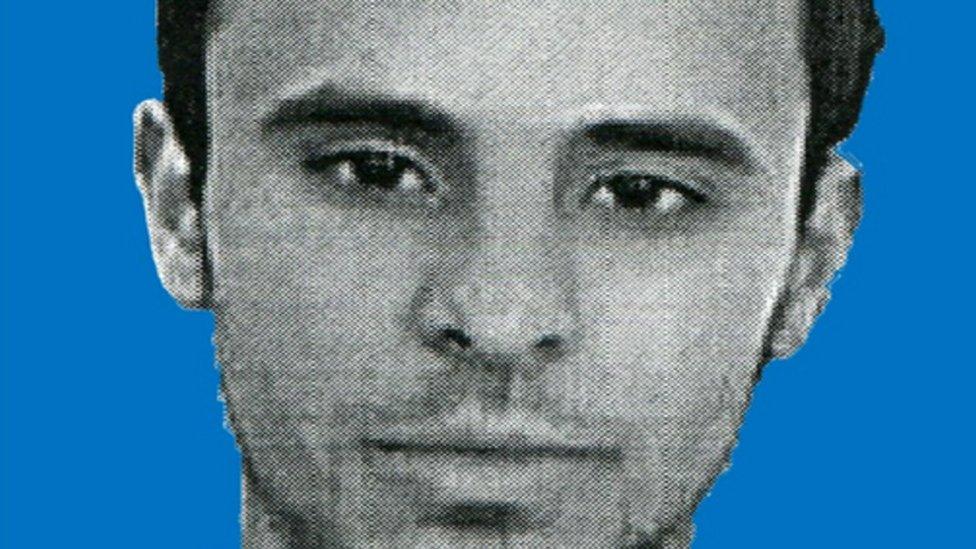
- Published29 February 2016
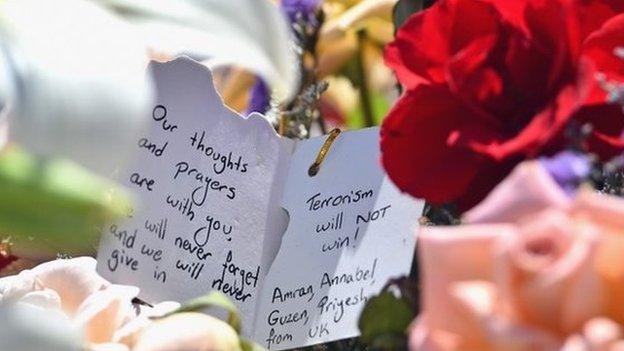
- Published30 July 2015
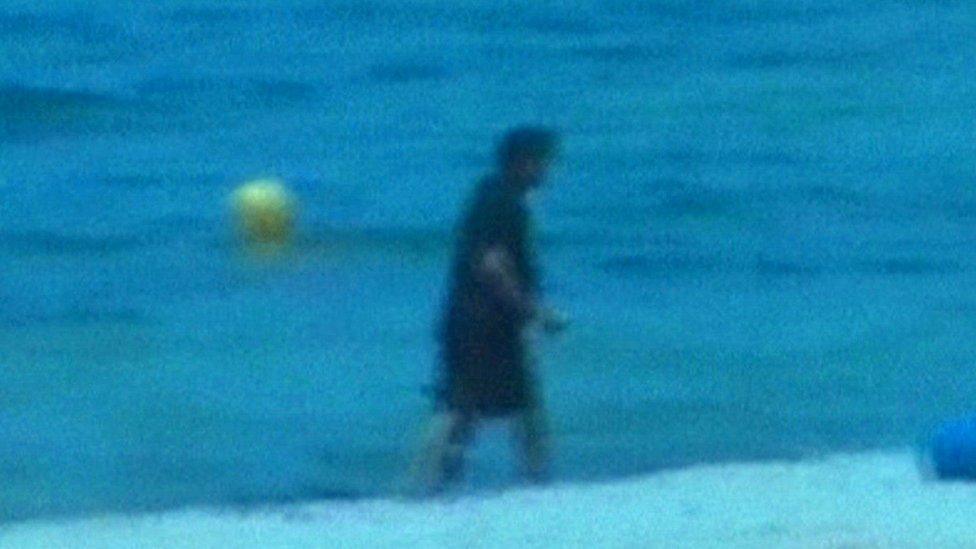
- Published29 June 2015
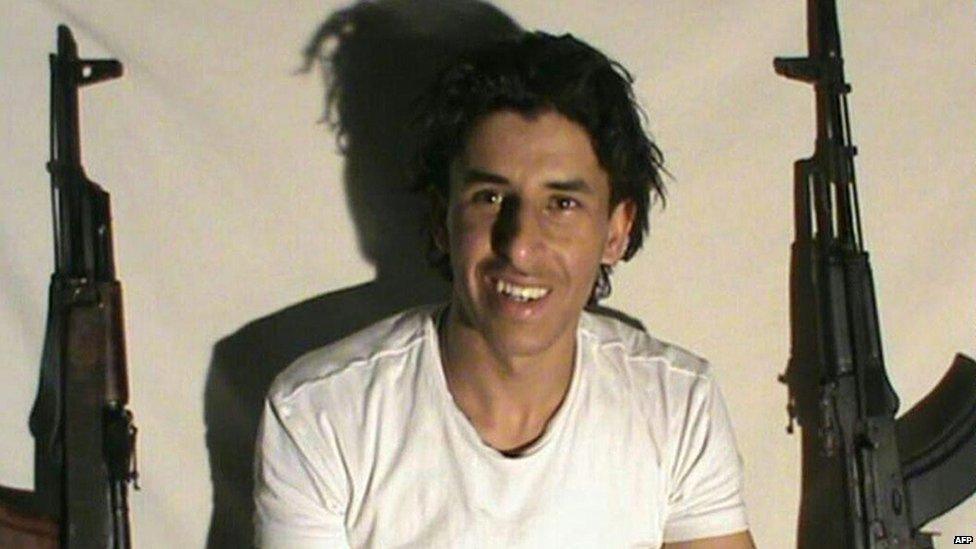
- Published30 June 2015
